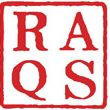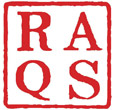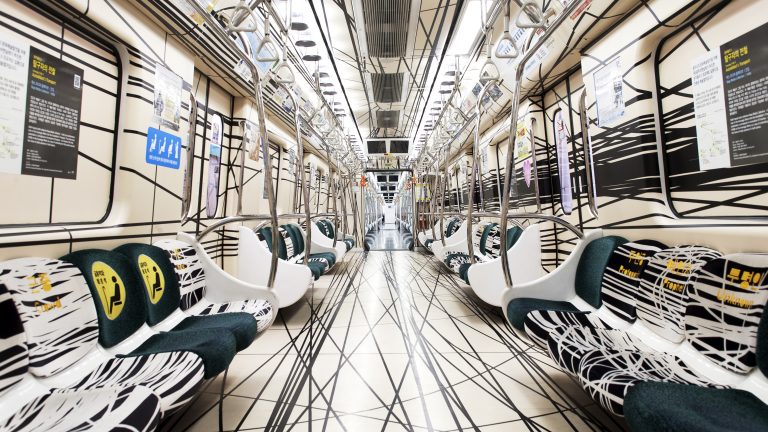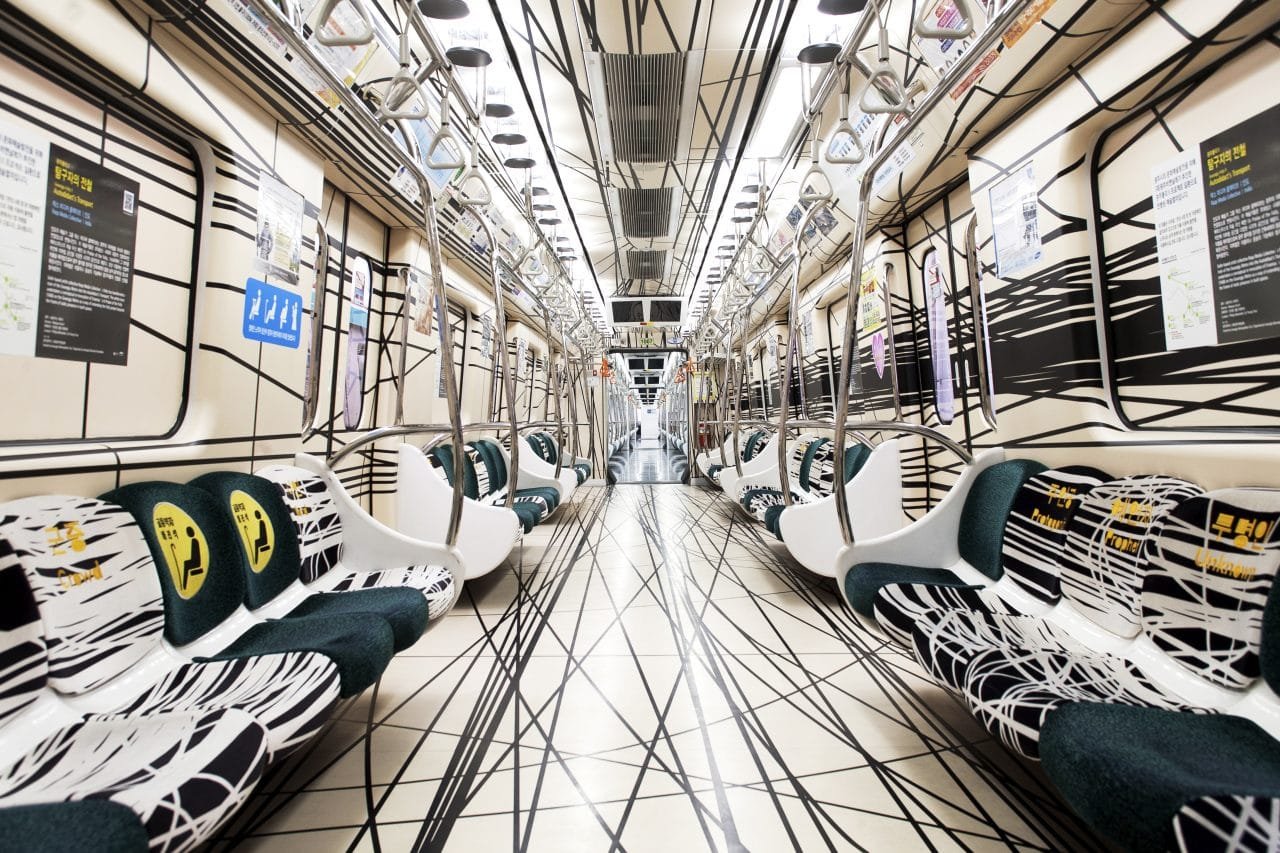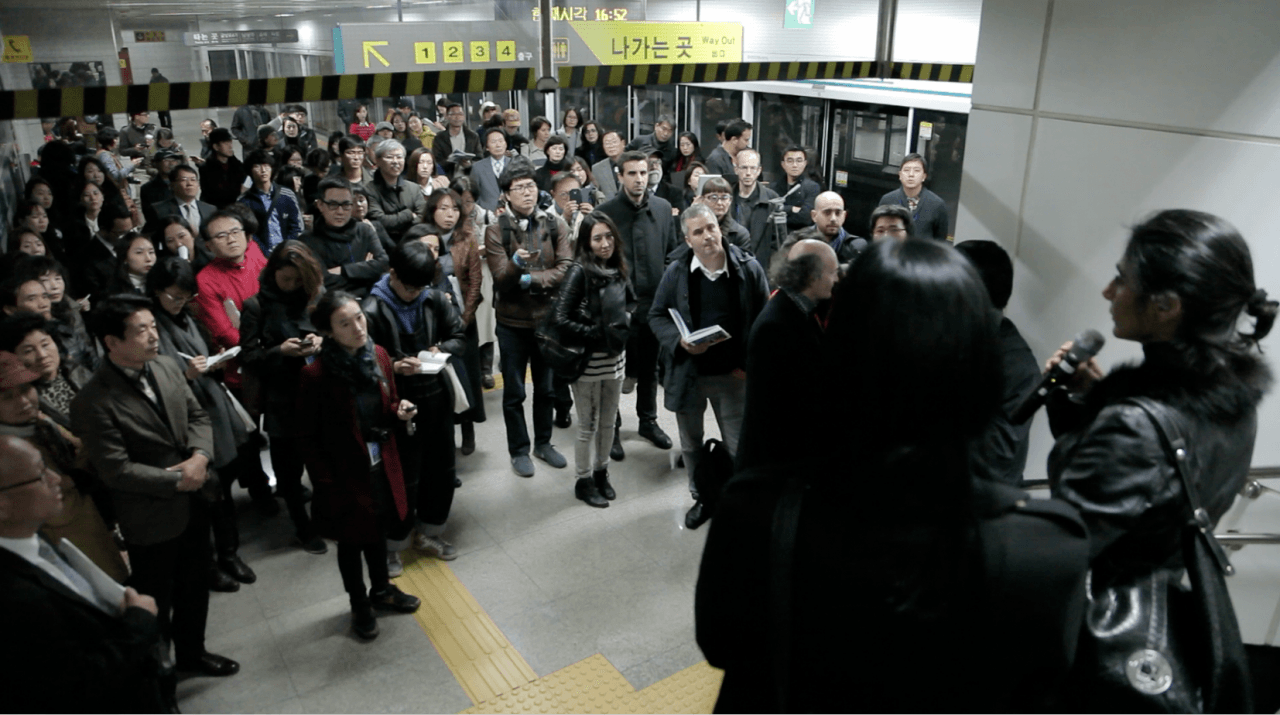Autodidact’s Transport
Public Art Project, Gwangju Folly, Gwangju Metro System, South Korea (2014)
Train carriage interior refurnishing, specially woven fabric, vinyl, short films, orations
The Autodidact’s Transport is a transformation of the interior of a Gwangju local metro train with literal lines of conversation (originally diagrammed from Raqs’ computer conversations with each other), scripted orations that parse Erasmus’ ‘In Praise of Folly’ to think about democracy, and with short films with aphorisms that run on the advertising monitors in the trains. Each carriage features seats inscribed with eighteen ‘roles’, and one reupholstered like the others but with no ‘role’ assigned to it. Each of these roles, written on the seats in Korean and English, allows commuters to become protagonists.
There are eighteen (+1) such roles: Anonymous, Bard, Critic, Agitator, Dissident, God, Pet, Prodigy, Prophet, Protagonist, Missing, Player, Hermit, Keeper, Pirate, Unknown, Star, Crowd and ( ).
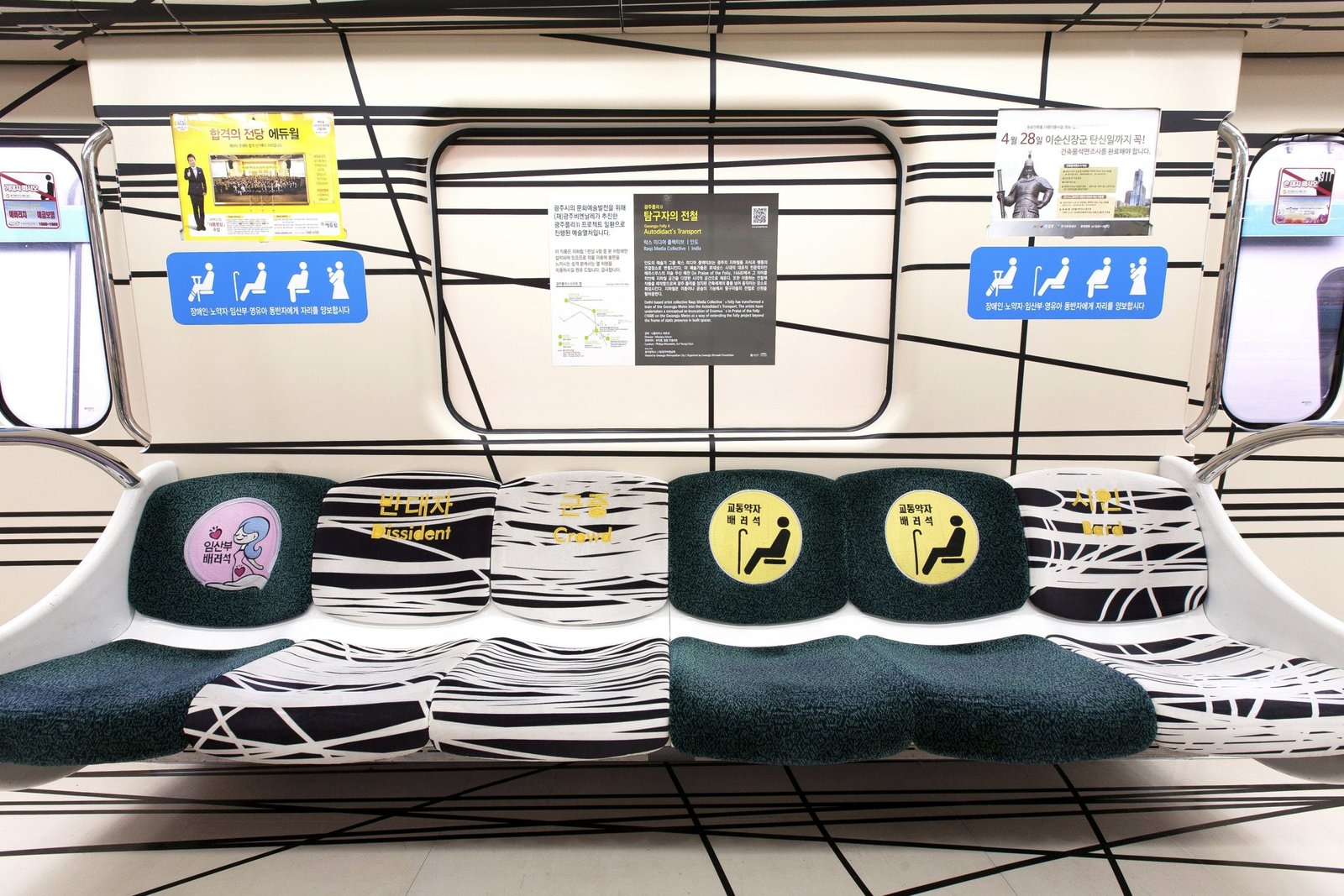
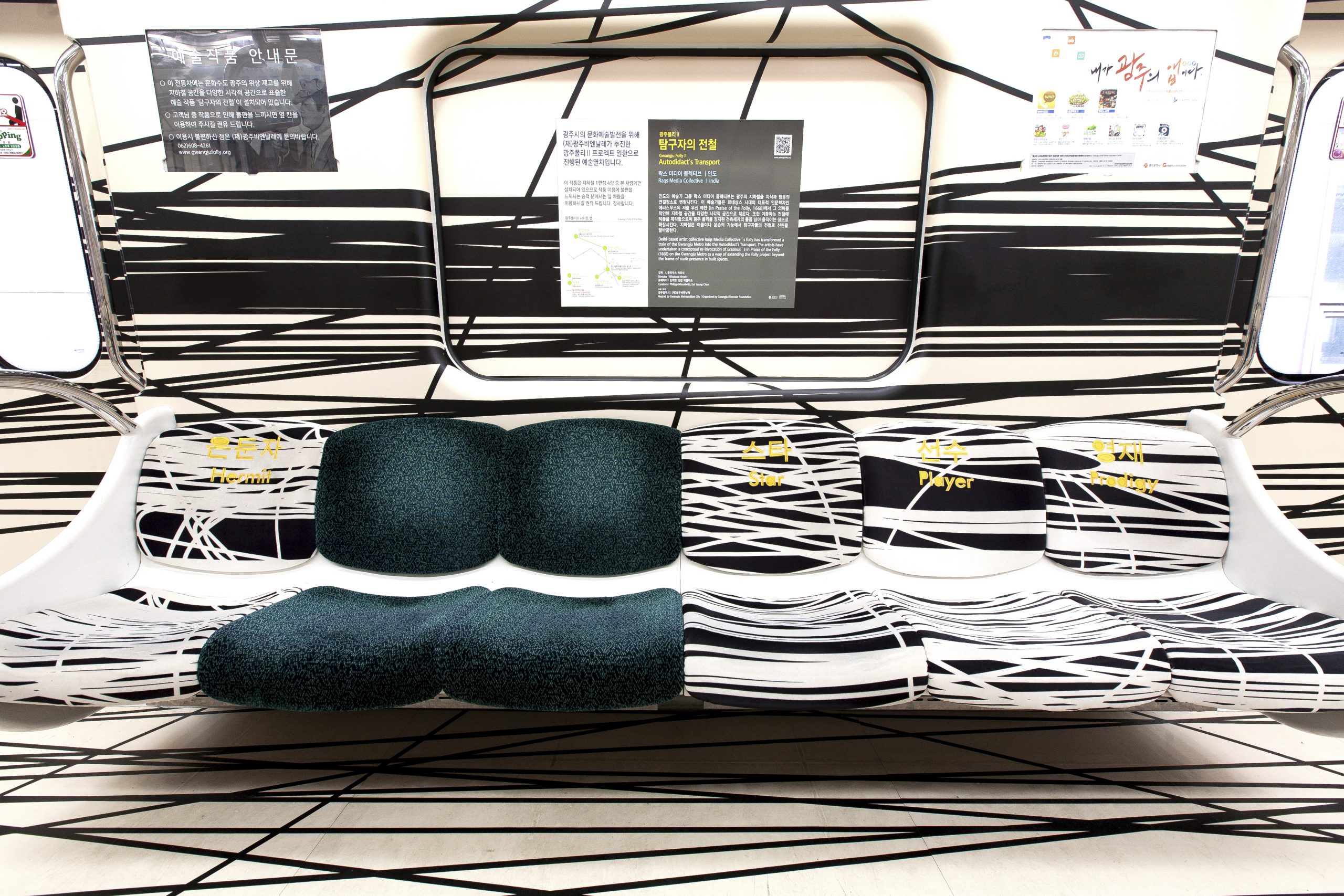
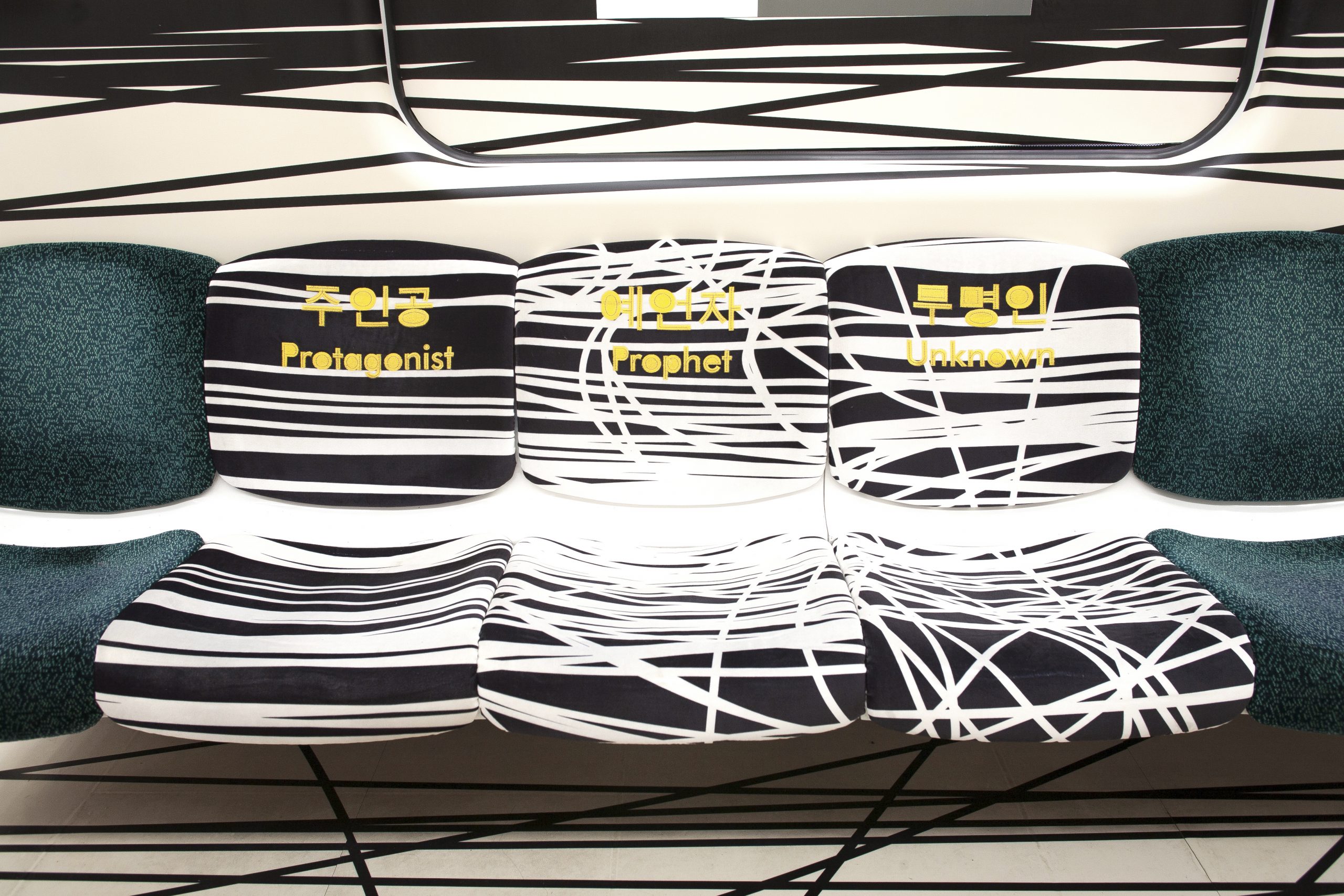
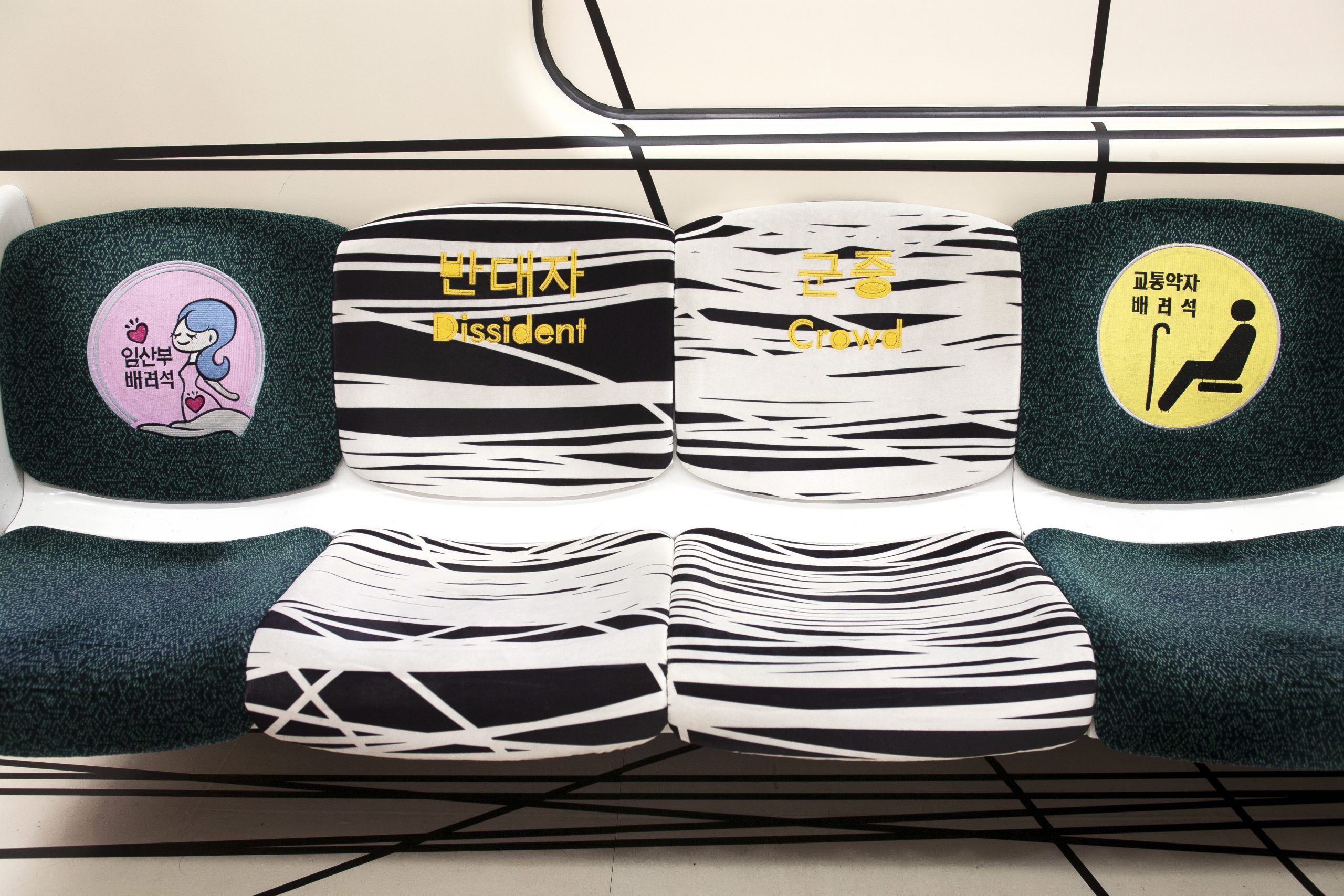
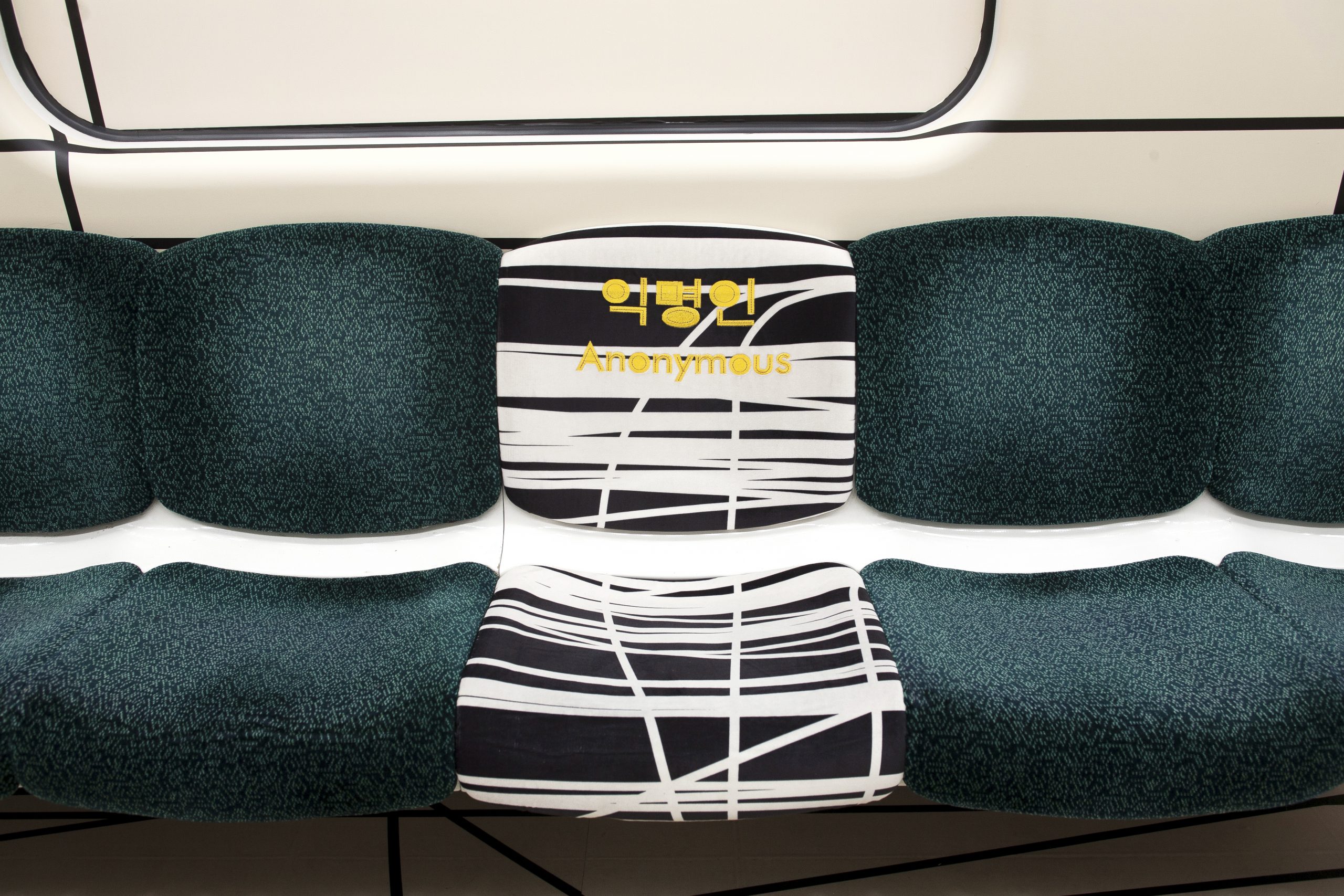
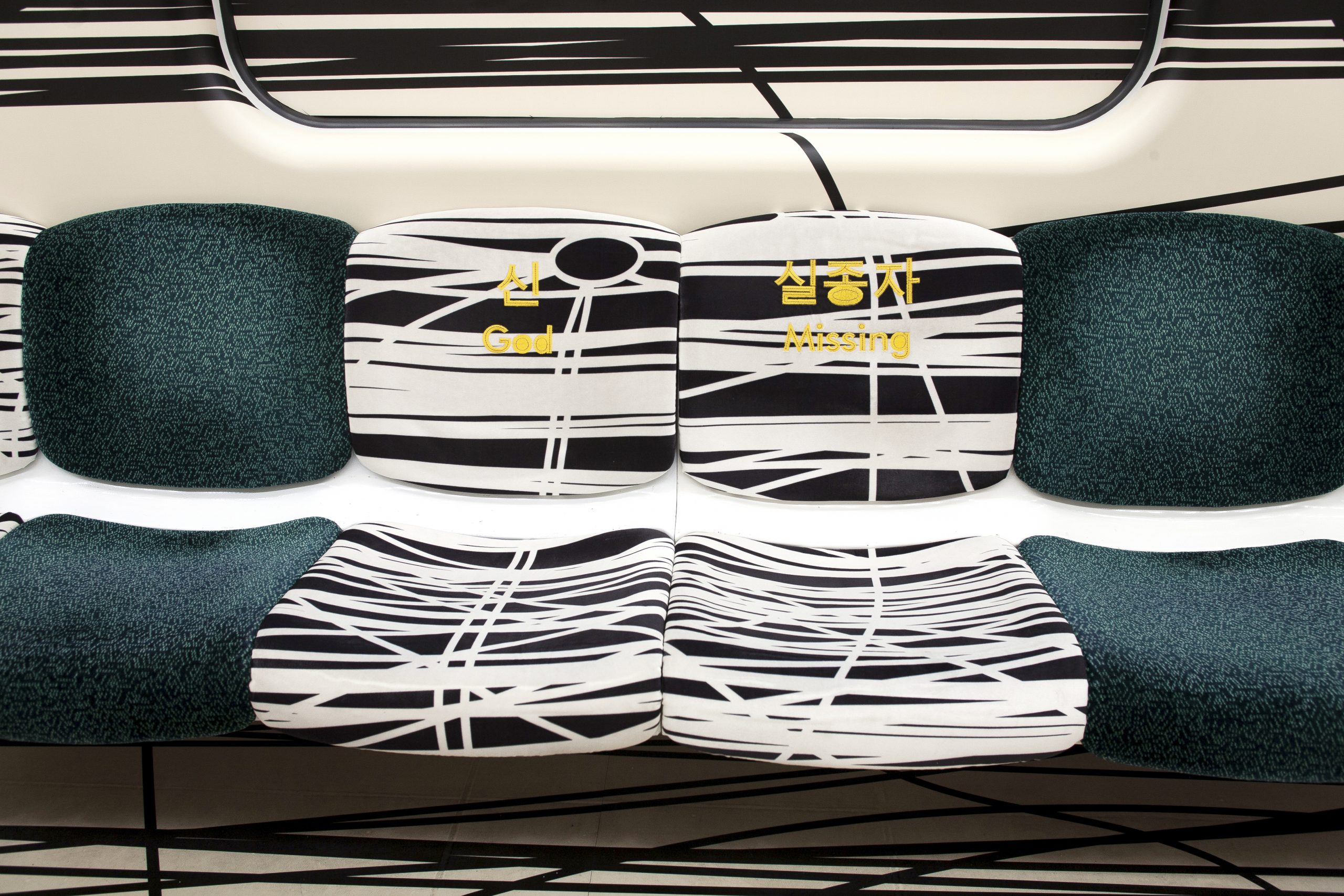
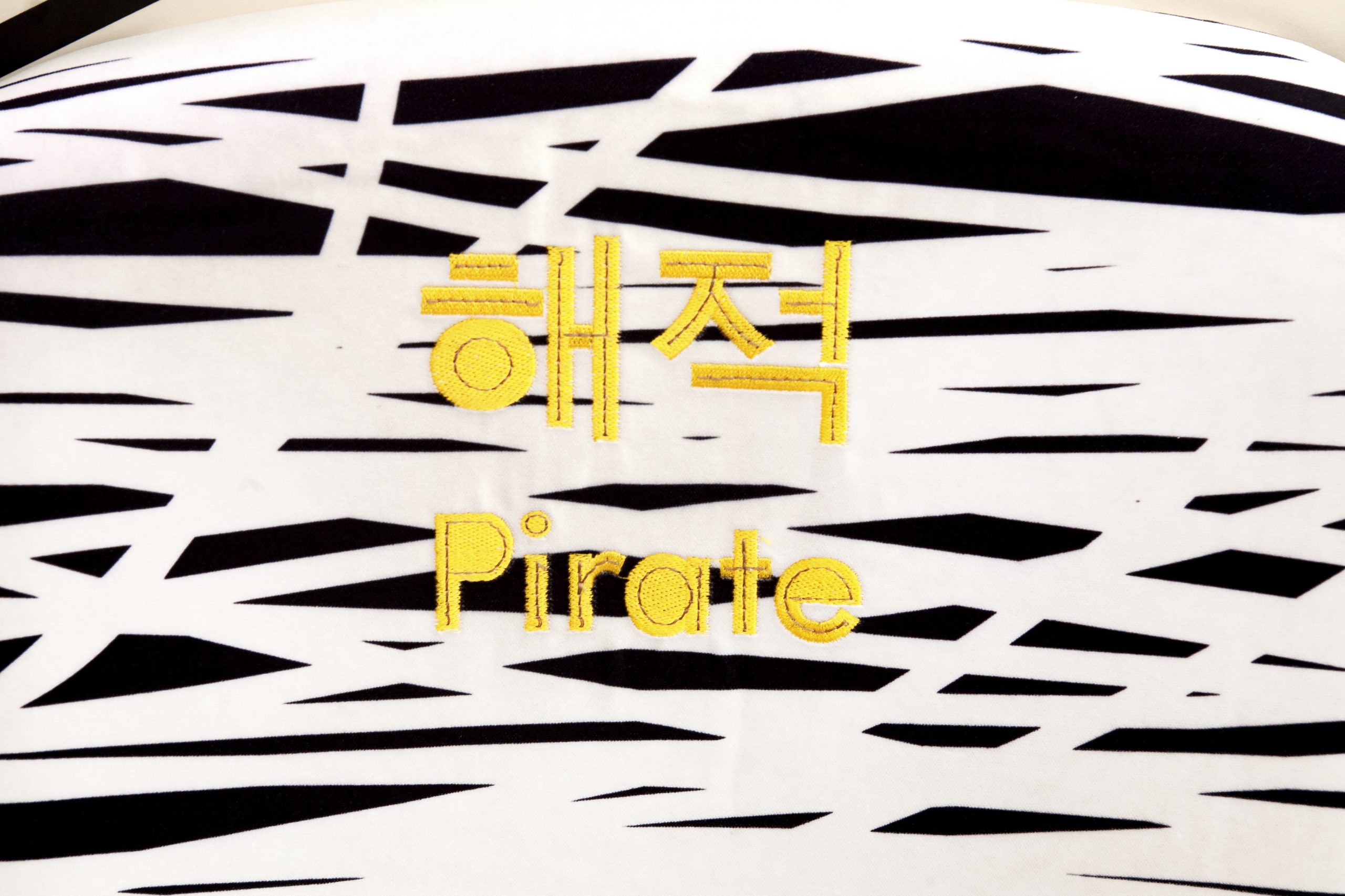
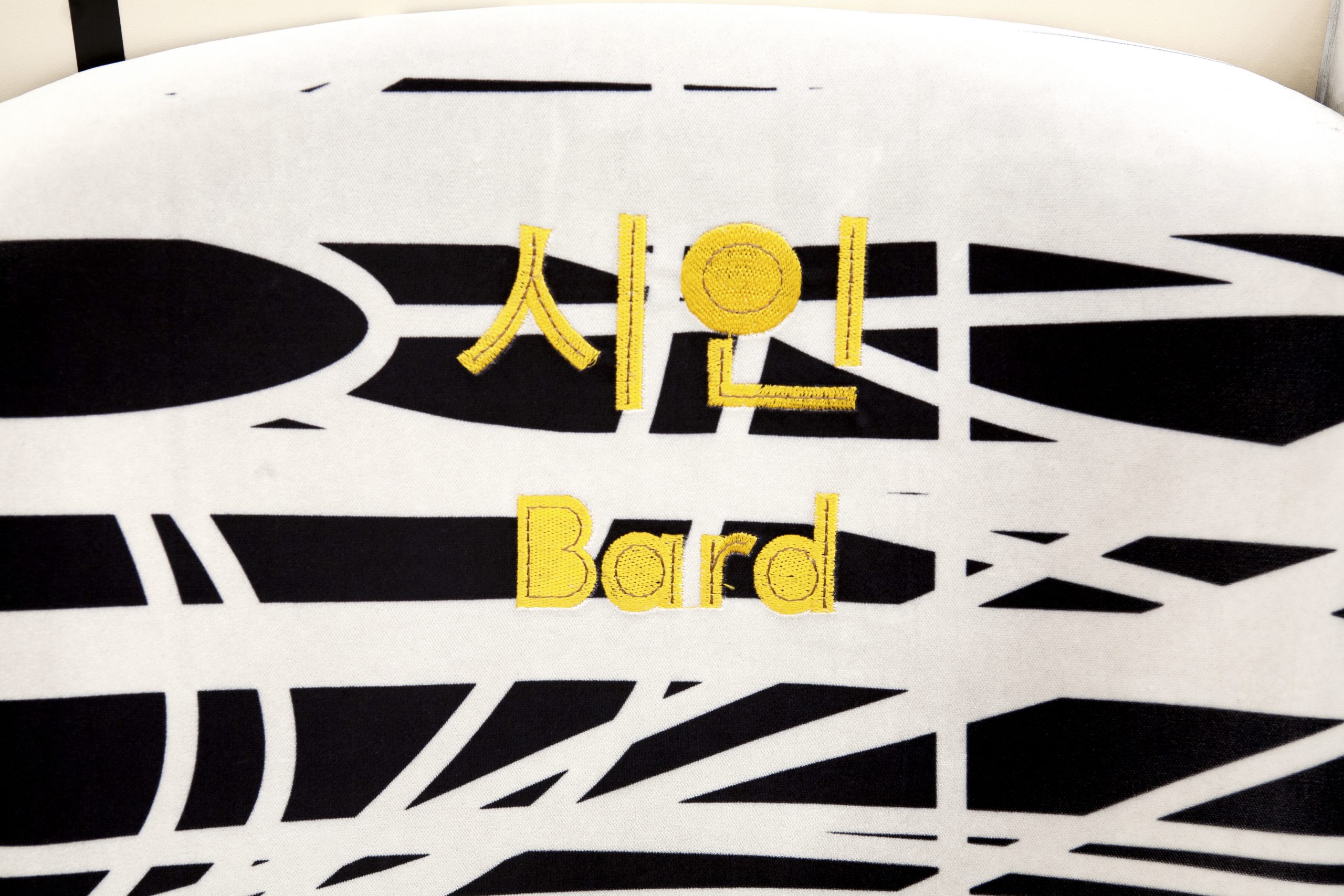
QUESTIONS POSED IN THE ORATION, AND THE MICRO FILMS PLAYING IN CARRIAGE SCREENS:
Can the liberty of one man be the prison of another?
Can the world be divided and free at the same time?
Can liberty be weighed, parceled, sold at a discount?
Can liberty wither if it is not watered?
Can liberty wax and wane like the moon, rise and fall like the sun, shine and fade like the stars?
Can liberty mean license, or leeway or laxity?
Can liberty be earned or must liberty be won?
Can liberty include the ability to question liberty itself?
Can liberty sleep and dream or must she always stay awake?
Can liberty take a holiday? Can liberty grow up? Can liberty grow old?
Can liberty be loved or must she always be revered?
Can liberty be the freedom from one’s own self?
Can liberty be hesitant, can liberty be gentle, can liberty whisper?
Can liberty keep secrets, can liberty laugh, can liberty cry?
Can liberty mourn the man who hangs with or without reason?
Can liberty change colors with the passage of days and the cycle of seasons?
Can liberty bleed? Can liberty breed? Can liberty be mother and daughter together?
Can liberty be liberty and not have to be disguised as a sovereign right or a solemn duty?
Once Again, in Praise of Folly
(for Gwangju Folly, as part of ‘Autodidact’s Transport’)
18 Orations by a Performer and a Scenario for Seated Passengers in the Gwangju Public Transport System
Onca Again, in Praise of Folly is a portable platform and scenario for a scripted performance designed to take place within a passenger car on the Gwangju Metro.The work takes ‘In Praise of Folly’ – a treatise by the Renaissance Humanist scholar Desiderius Erasmus as its inspiration to create a mobile meditation on the foibles and follies of civic life. Each oration will address a particular paradox or problem that we see unfolding in the relationship between people and power. In this way, the work will respond to the legacy of the 18th of May movement in Gwangju, which brought about a new way of thinking about self, sovereignty and the life of the assembled crowd.
It features a masked jester (borrowing elements from the visual signature of the traditional Korean T’alch’um masked dance form) armed with a megaphone (of the type that iconic in images of Korean protest demonstrations) travelling travel on the metro. The jester will address passengers on the metro in a customized train. Each carriage will feature seats inscribed with eighteen ‘roles’ . The passengers seated in these marked seats will be addressed according to the ‘roles’ prescribed for them by the work (which will be written on the seats in Korean and English). In this way, they end up becoming ‘actors’ in this drama. There are eighteen such roles – which are as follows – Expert, Magnate, Critic, Agitator, General, Player, Pet, Prodigy, Prophet, Unknown, Missing, Student, Hermit, Teacher, Beast, God, Keeper and Crowd.
The jester travels through the carriages in the train exhorting cajoling, haranguing and serenading the passengers with eighteen specially scripted orations written in a comic hyperbolic style that will echo but not replicate the voice adopted by Erasmus in ‘In Praise of Folly’. The exterior and interior of the carriages are modified (they will be covered in images of a library of wordless books), the seats will are re-upholstered, and the video screens and public address system (used for announcements and advertisements) inside the carriages are used to play recordings and short video clips (featuring text movies and brief portraits with captions) quoting segments of the work.
Texts are written by Raqs and translated from Korean to English. The producer for this work is the Theatre and Television Director – Jih Yun Kim.
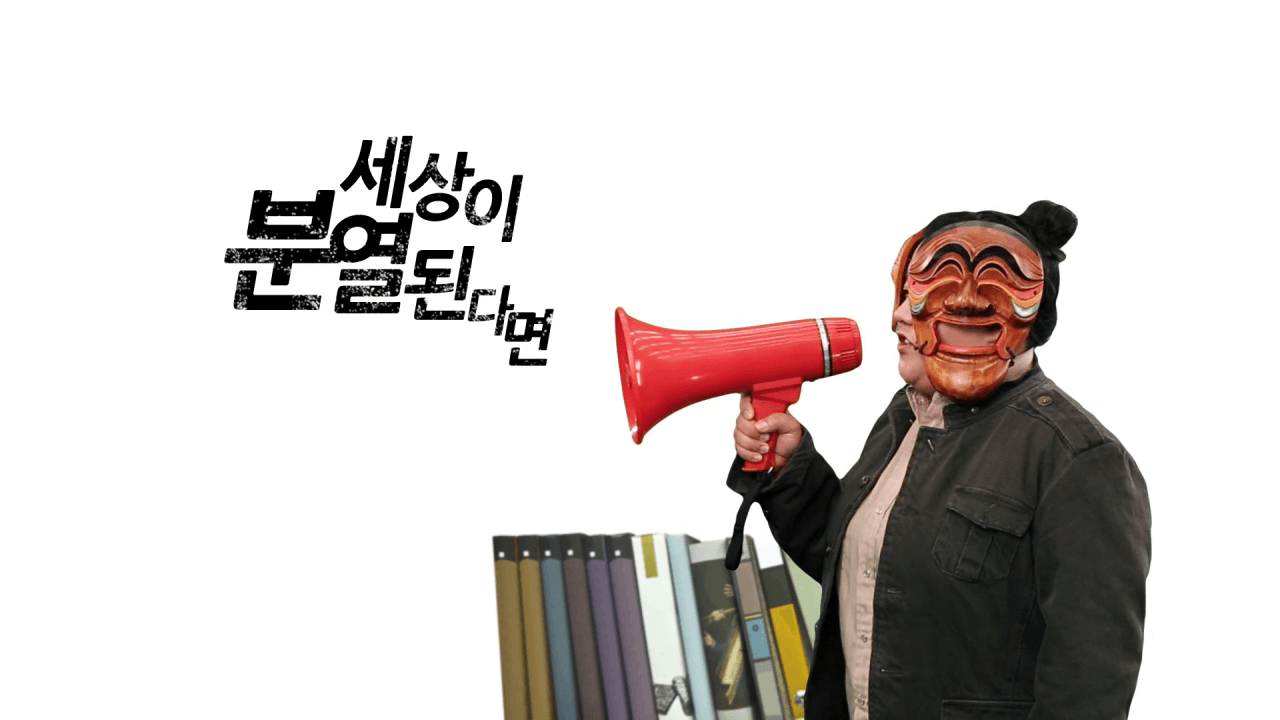
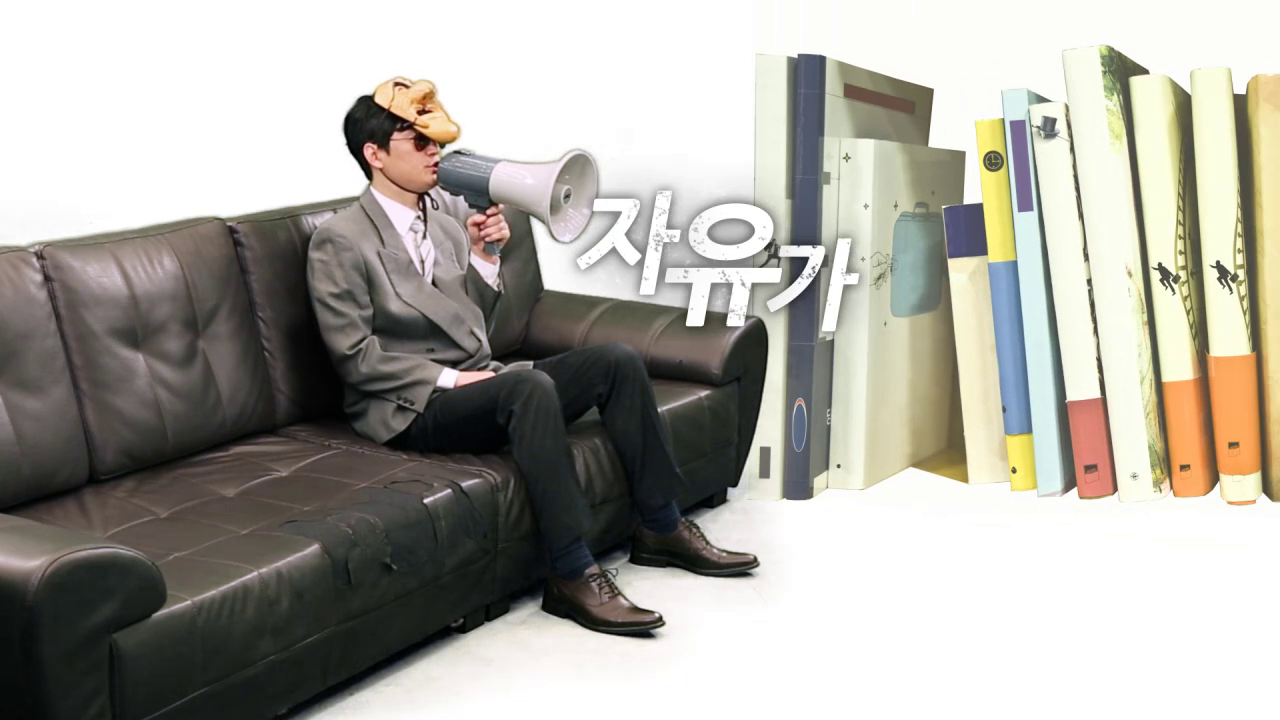
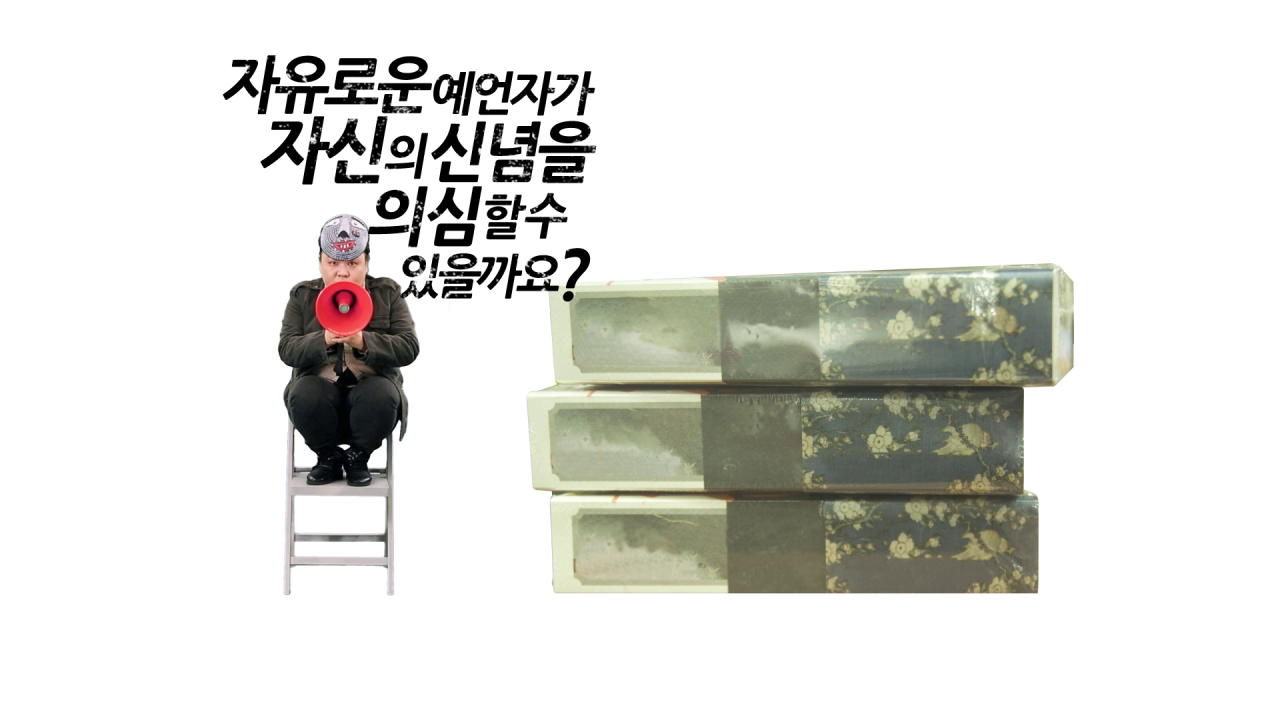
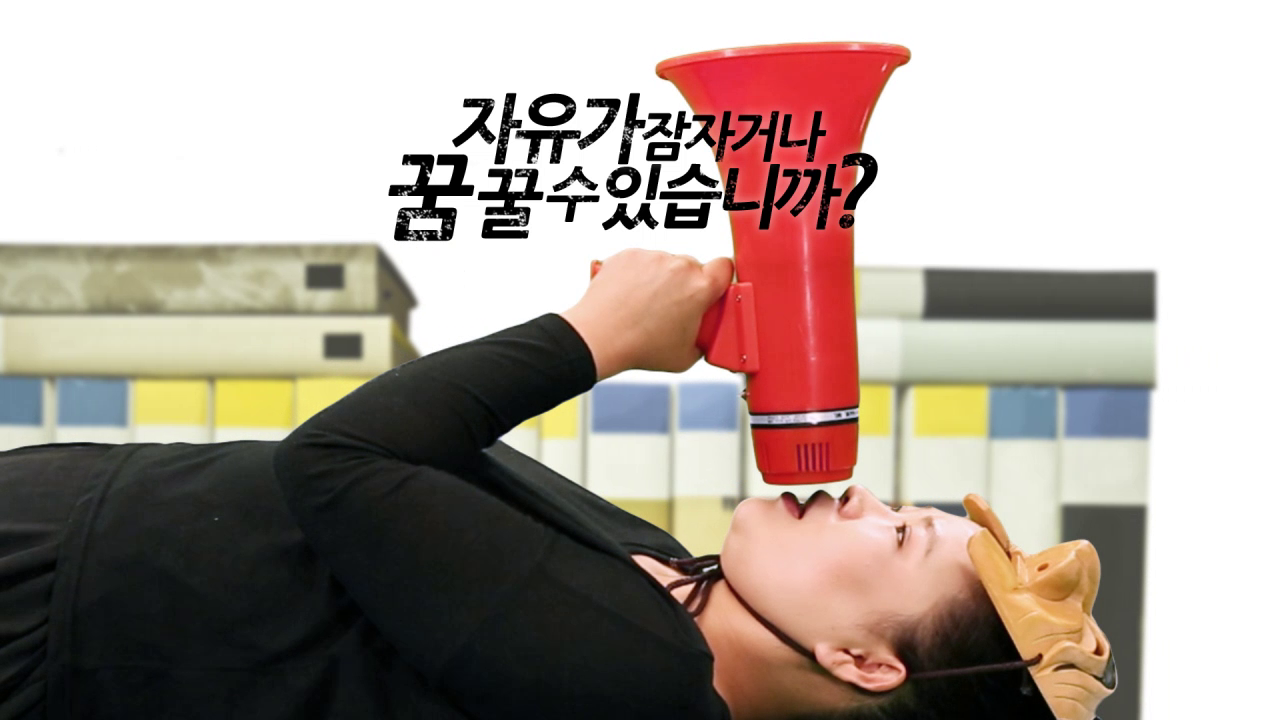
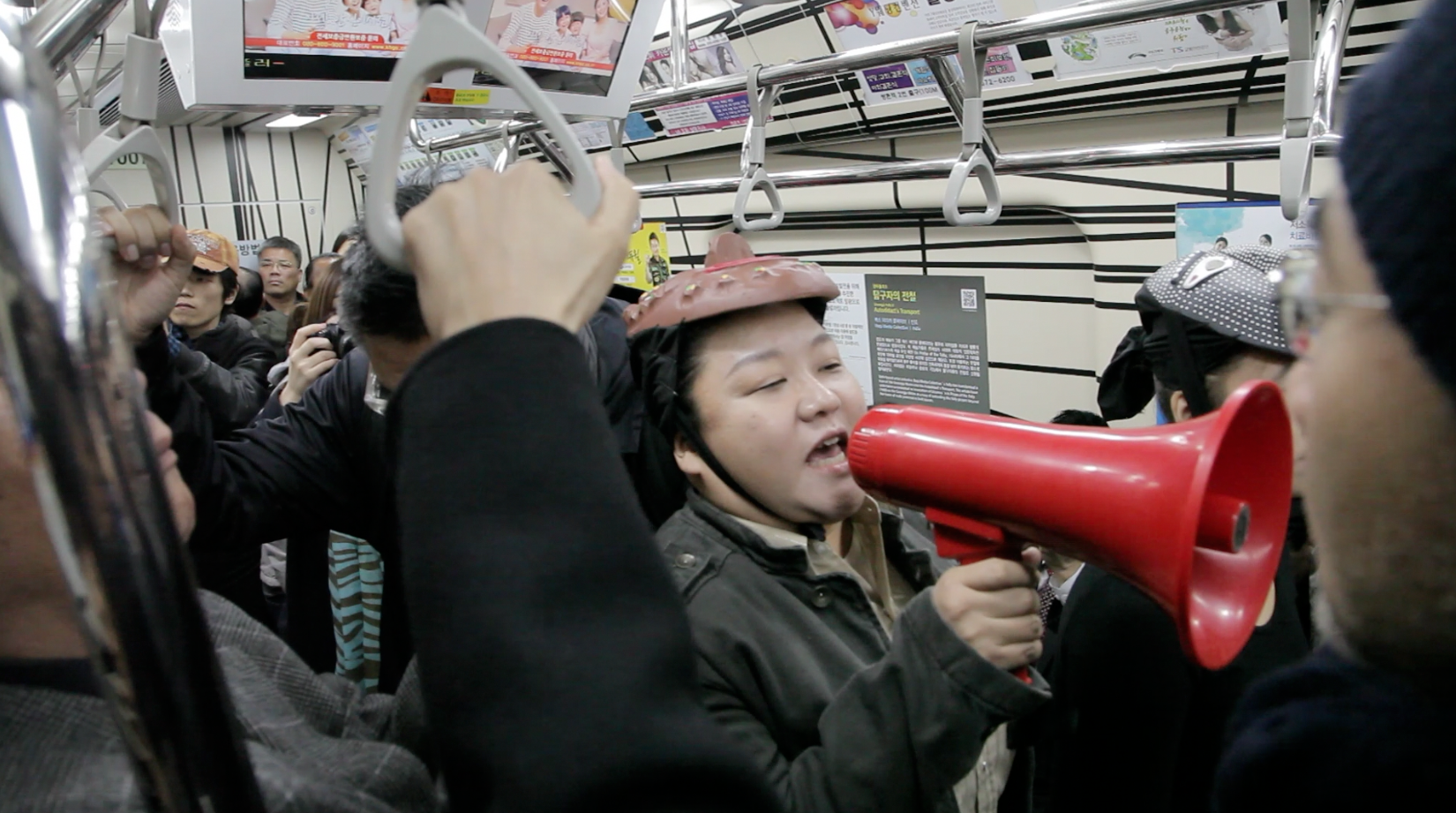
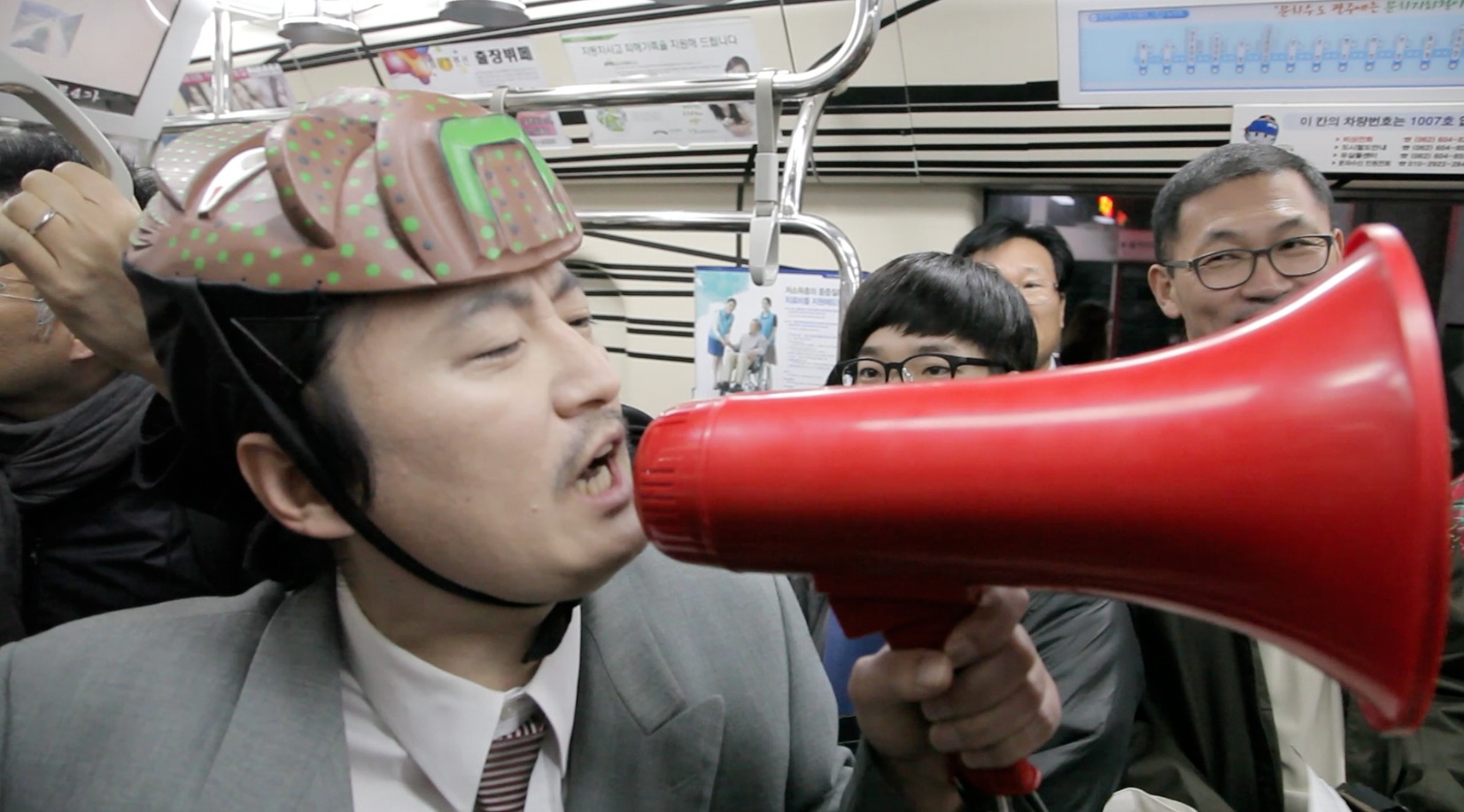
“Good people, men and women of Gwangju, little children. I travel up and down this train, asking this question, being liberty’s attendant, and all I receive are embarrassed stares, titters of laughter, and the sidelong glances of people who choose to look away. Do not bury yourself in your newspaper, leave your mobile aside for a while. I teach myself by looking at you, by being with you, and I ask myself –
Is the liberty of the magnate, the general and the expert the same as the liberty of the agitator, the student and the hermit?
I ask myself what happened to the liberty of the missing – of those who disappear or are made to disappear? Are they more free now than when we knew them and knew their every move?
I ask myself whether my pet has the liberty to keep me, because I know no one who owns me more than my cat. I wonder whether, if God exists, she is at liberty to change her own rules, or is he the prisoner of his own divinity. I wonder if prophets are at liberty to doubt their own faith. Whether a beast is more at liberty than man. Whether thekeeper is the slave of the kept. I ask you if you know any liberty greater than that of the stranger?
Set me free good people, set me free. Set me free of these questions that have been plaguing me since time immemorial. That sit on my shoulders like a vampire sits on the living, feeding off my conscience, my reason, my passions. Take each of my questions and turn them around in your heads, hold them up to light and to mirrors, dust them and clean them and make them shine. Let them live and let me be.
Li-ber-Tyeeeeee!”
– With an Untimely Calendar, Exhibition Catalogue, National Gallery of Modern Art, New Delhi (2014)
